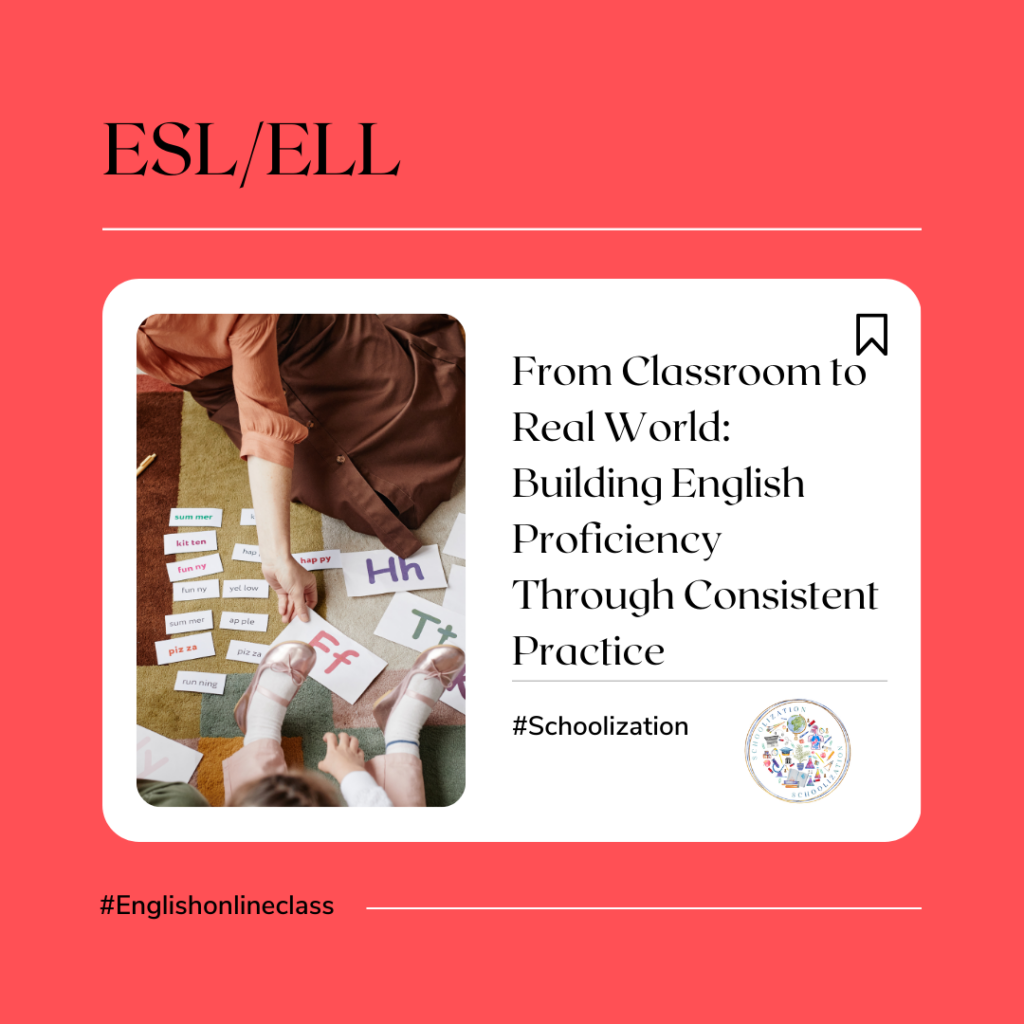Achieving fluency and proficiency in English is a journey that requires dedication, time, and consistent practice. For students, this can seem daunting, but with the right strategies and tools, mastering English becomes a rewarding experience. This blog explores how consistent practice aids in building English fluency and proficiency and provides practical ways to integrate this practice into daily routines.
The Importance of Consistent Practice
Consistent practice is crucial for language learning for several reasons:
Retention and Reinforcement: Regular practice helps reinforce previously learned material, ensuring that it stays fresh in the memory. This leads to better retention and understanding of the language.
Skill Development: Language learning encompasses various skills, including listening, speaking, reading, and writing. Consistent practice allows students to develop these skills simultaneously, leading to comprehensive language proficiency.
Confidence Building: Regular exposure to English through various mediums helps build confidence. As students become more familiar with the language, they are more likely to use it in different contexts without hesitation.
Real-Life Application: Consistent practice provides opportunities to apply language skills in real-life situations, making learning more practical and relevant.
Practical Ways to Practice English Consistently
1. Watching English TV Shows and Movies
Immersing oneself in English through TV shows and movies is an enjoyable way to enhance listening skills and vocabulary. Here are some platforms and recommendations:
Netflix: Offers a vast library of English TV shows and movies across various genres. Subtitles can be used to aid understanding and improve reading skills simultaneously.
YouTube: Channels like “English Addict with Mr. Duncan” and “BBC Learning English” provide educational content in an engaging format.
Amazon Prime Video: Another excellent platform with a diverse range of English shows and movies, including exclusive content.
Hulu: Offers both on-demand and live TV options, making it a versatile choice for learners.
Some recommended shows include “The Big Bang Theory” for informal conversational English, “60 Minutes Australia” for formal documentary-style English, and “Saturday Night Live” for a mix of humor and contemporary slang (StoryLearning).
2. Listening to Audiobooks and Podcasts
Listening to English audiobooks and podcasts helps improve comprehension and pronunciation. Here are some popular apps:
Audible: Offers a vast selection of audiobooks across all genres.
Spotify: Provides access to numerous English-language podcasts on various topics, from news to storytelling.
Beelinguapp: Combines audiobooks with text, allowing learners to follow along while listening (Preply).
3. Using Language Learning Apps
Several apps are designed to make learning English fun and interactive:
Duolingo: Uses gamification to teach English through engaging exercises that cover vocabulary, grammar, and sentence structure.
Rosetta Stone: Focuses on immersive learning by teaching English entirely in English, helping learners think and understand the language.
Babbel: Offers structured courses with practical dialogues and cultural tips (FluentU).
4. Engaging in Language Exchange
Practicing with native speakers is invaluable. Platforms like Tandem and HelloTalk connect learners with native English speakers for conversation practice. These interactions can be through text, voice messages, or video calls, providing real-time feedback and correction (Preply).
5. Reading Regularly
Reading English books, articles, and blogs helps expand vocabulary and improve comprehension. Tools like Kindle provide access to a vast library of English books with built-in dictionaries and translation features. Beelinguapp also offers a dual-language reading experience to help with comprehension (Preply).
Integrating Practice into Daily Routine
To make consistent practice a habit, it’s important to integrate it seamlessly into daily routines. Here are some tips:
Set Specific Goals: Define clear, achievable goals, such as learning a certain number of new words each week or watching one English movie every weekend.
Create a Schedule: Dedicate specific times of the day to practice English, whether during a commute, before bed, or during lunch breaks.
Use Technology: Leverage smartphones and tablets to access language learning apps, audiobooks, and videos on the go.
Join Online Communities: Engage with other learners on Reddit or language learning forums to share tips, resources, and support.
Consistent practice is the cornerstone of building fluency and proficiency in English. Students can enhance their language skills by incorporating diverse methods such as watching TV shows, listening to audiobooks, using language learning apps, and engaging in language exchange. Integrating these practices into daily routines makes learning more manageable and enjoyable, paving the way for success in mastering the English language.
Have any tips on building English proficiency to share with the community? We’d love to hear them! Leave a comment below or send us an email!

